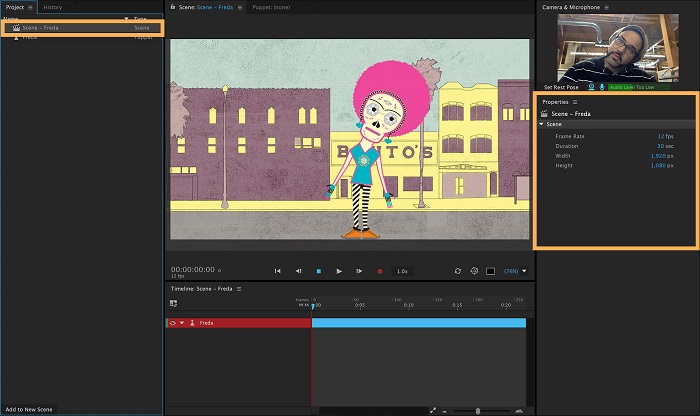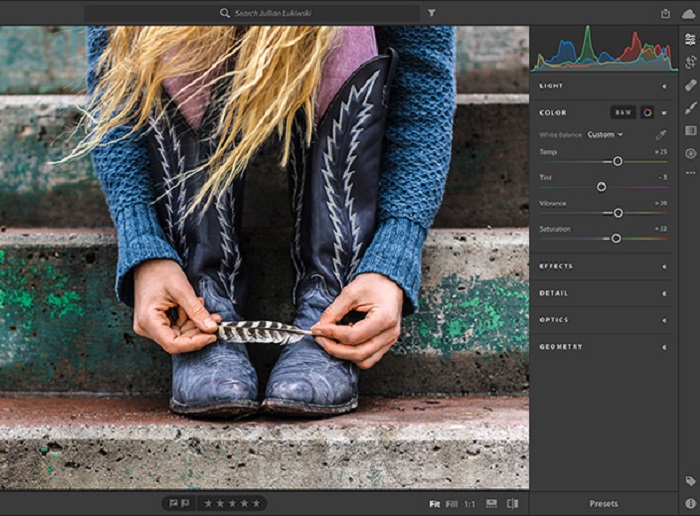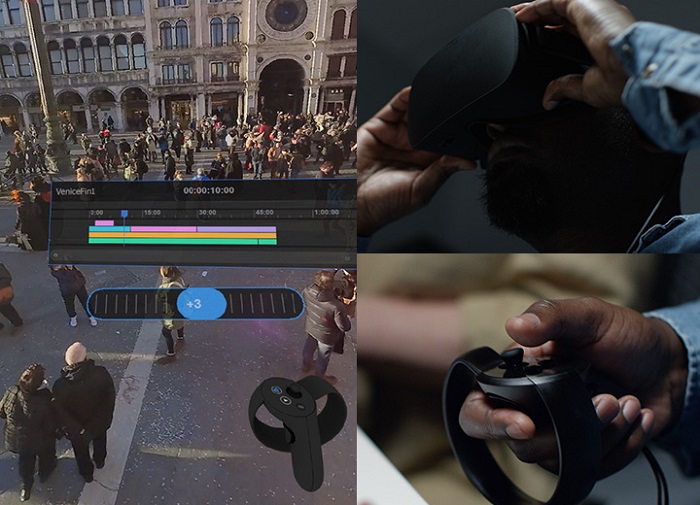Meraki VR co-founder Parth Choksi passes a sigh of relief as he works with his team on their latest virtual reality project. The new updates dished out by Adobe seemed to have made their work process much easier as the studio deals with cinematic VR. Choksi says, “It is really great to see Adobe adding features and compatibility for Virtual Reality. For filmmakers, editing and working on 360 degree footages have become really easy due to the added features, especially addition of the graphics bit. Earlier, we had to purchase and install third party plug-ins to edit. But now, After Effects and Premiere Pro have all the features.”
Adobe has been at the forefront of the creative industry, consistently releasing varied sets of tools for the sector. Apart from becoming one of the most trusted brands in the sector, Adobe has also relentlessly pushed the limits on how creators perceive the process of bringing ideas to life.
The recent updates from Adobe brought in a gamut of fresh offerings for its user base as well. For example, the Adobe Character Animator makes it easy for anyone with Photoshop and Illustrator skills to design characters and bring them to life using a webcam thus making animation more fun and accessible to all. There are several examples of character animation being used for episodic animated content on YouTube, some of which are Monster Talk by Ben Phelps, Little Toby Ret by First Sergeant Josh King and I Want to Work in a Shop by Fitbathatba. The animators at The Late Show with Stephen Colbert on CBS also use Character Animator in an interesting way by rolling out several episodes with live cartoon versions of Donald Trump, Hillary Clinton and Vladimir Putin interacting with the host. There are also examples of Character Animator being used for Live Interactive Displays at tradeshows and events. A film and art expo recently featured a live booth for interaction with Brad Pig (main character of a movie and TV review show on YouTube), a creation of Jim Fier.

With the magnitude of projects scaling further heights in the industry, multiple artists are working on same projects to speed up the process. The task can be tedious and as multiple users working on a same project, the collaboration must be on point. Here’s where the new updates from Adobe come into play.
Editors and motion graphics artists can now work collaboratively within Adobe Premiere Pro, After Effects, Prelude and Media Encoder using Team Projects. Team Projects is a hosted service which is available to Creative Cloud for enterprise (CCE) and Creative Cloud for teams (CCT) customers. Although the projects are created in the cloud but the media/footage used in the project must remain on the local machine. As soon as a collaborator makes any changes to the project and publishes them, the other users are notified of the change and can choose to either keep their version of the project or take the shared version or copy and rename their version and then take the shared version. They can also view previously shared versions of the project along with the comments that collaborators may have made. It also supports Adobe Dynamic Link between Premiere Pro and After Effects to allow seamless exchange of sequences and compositions without rendering and exporting between the apps.
We spoke to an avid user of the software to get an understanding of its practical implications.
“I have been working on premiere pro since 2015 and have found the latest update to be quite handy and helpful. There are a bunch of new features in the latest iteration of Premiere Pro. Possibly the best feature is being able to use AE templates in premiere pro without having AE installed on your system. This feature helps people with low budget editing setups to add some After Effects flare to the videos without the associated load on the system. Although I have a Gaming PC, this feature mainly benefits me to use my AE templates like motion typographies inside of Premiere Pro which makes the process smooth and saves a lot of time,” says Ved Mahajan, a video editor from Ideatelabs.
Mahajan further adds, “Another interesting feature is the responsive design which helps a lot. Prior to the introduction of this feature, if we reduced the time of a clip, some animations would be lost and would need key framing to get into place again but with this feature, even if we shorten the videos, the in and out animations of most of the scenes remain the same. Lastly, the VFR (variable frame rate) as an Indian editor, I receive footage/rushes from various cameras and also mobile phones, this feature helps smoothen the process. Other significant improvements include the VR support in premiere, editing on multiple projects at once and also the Getting Started Experience as it may not help me much but it indeed will help all of those who are new to editing videos.”

With virtual reality being the latest entrant to the creative industry, Adobe seems to have given it a warm welcome. The latest update from the team does not leave out the VR sector as well, as Adobe Systems creative evangelist Guru Vaidya asserts, “The 360/VR tools in After Effects automate complex compositions and workflows for a seamless 360 production. Traditional effects and workflows are not compatible with VR clips and can cause problems at the seams when viewed in VR mode. Therefore After Effects CC and Premiere Pro CC now include a new set of GPU powered Immersive effects and dynamic transitions dedicated for VR/360 videos.”

Besides the Immersive effects, After Effects CC also makes compositing for VR easier with the addition of a new VR comp editor which keeps track of all the composition edits and updates the final output composition for rendering different VR output formats. The editor provides view-based editing to view the footage as you would see through a VR headset making it easier to visualise the final output.
From what seems to be a beneficial update from the team of Adobe, we can expect to witness creative users leaning heavily to reap the benefits. Apart from making the process of creation much easier, the fresh updates will also give users a chance to add on more effects and push their creativity further. All of that while saving a hefty timeframe.

